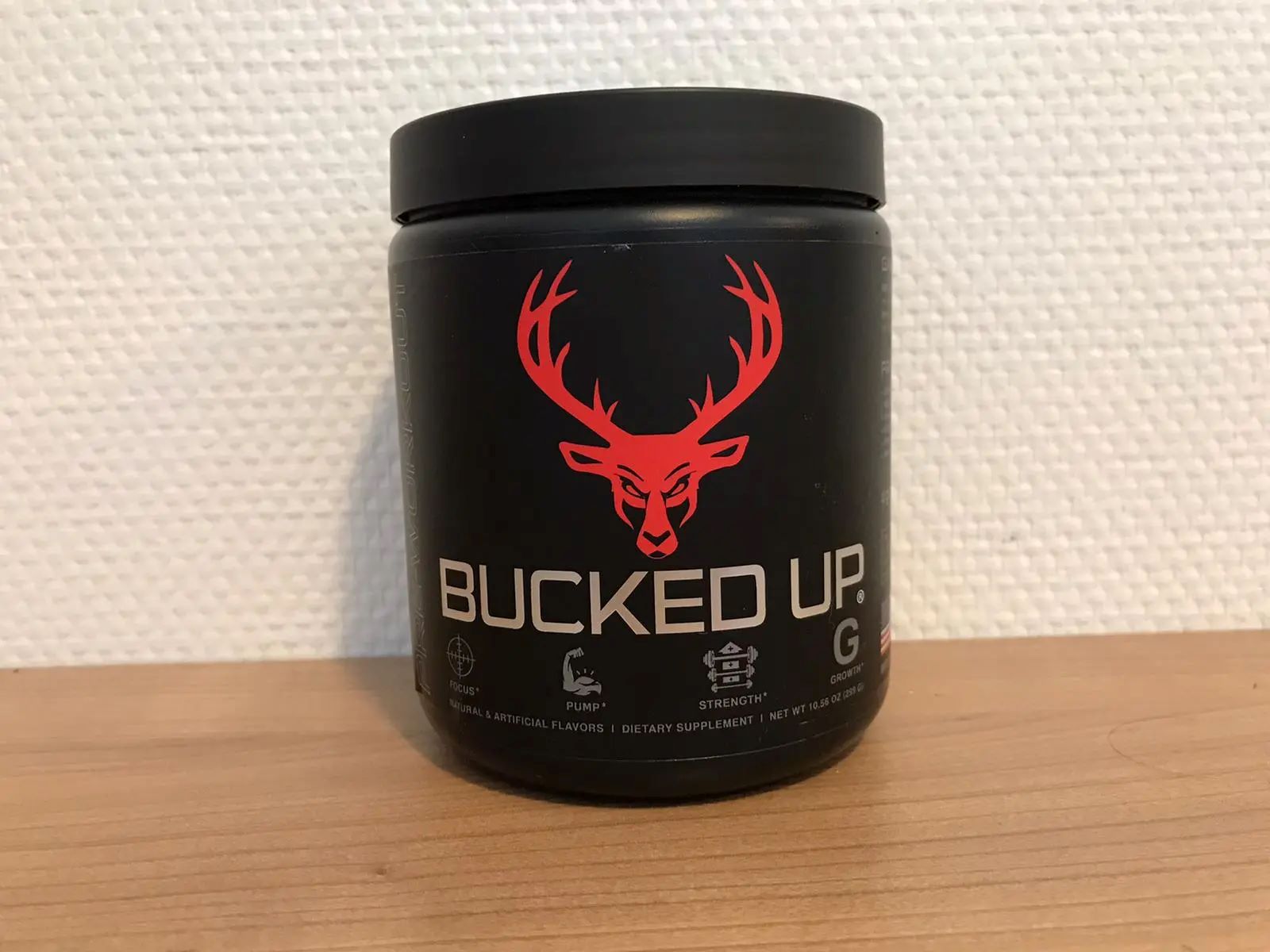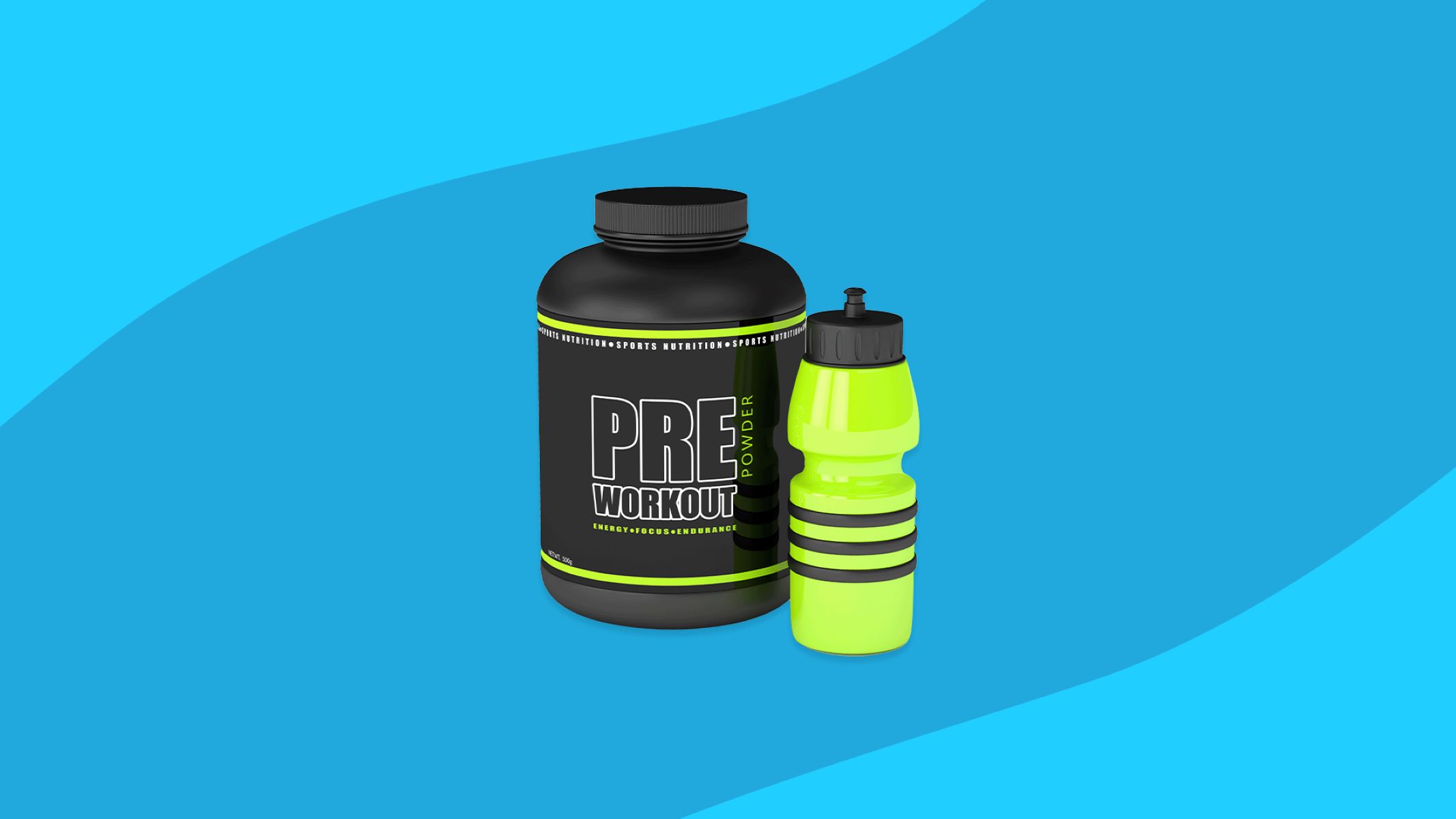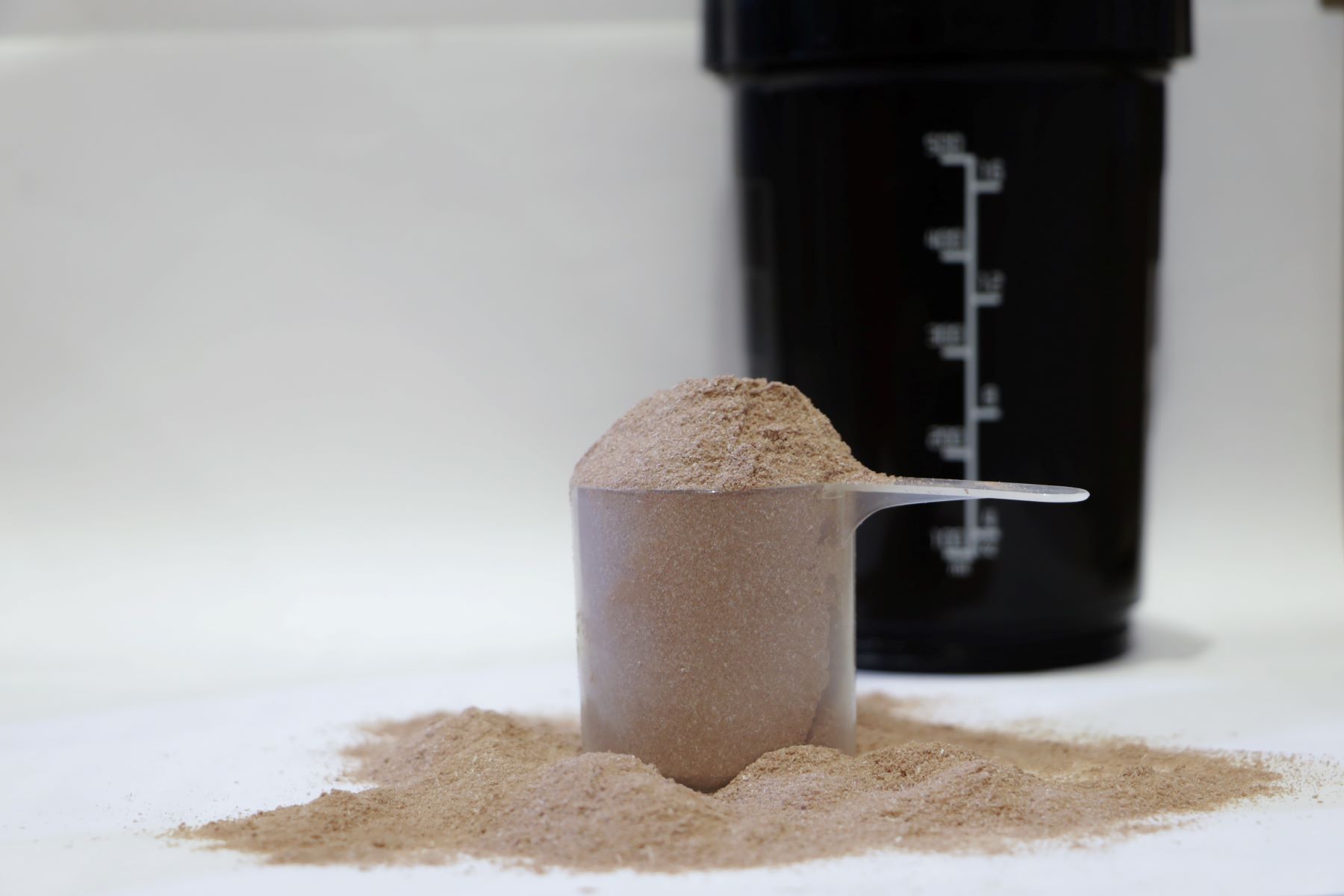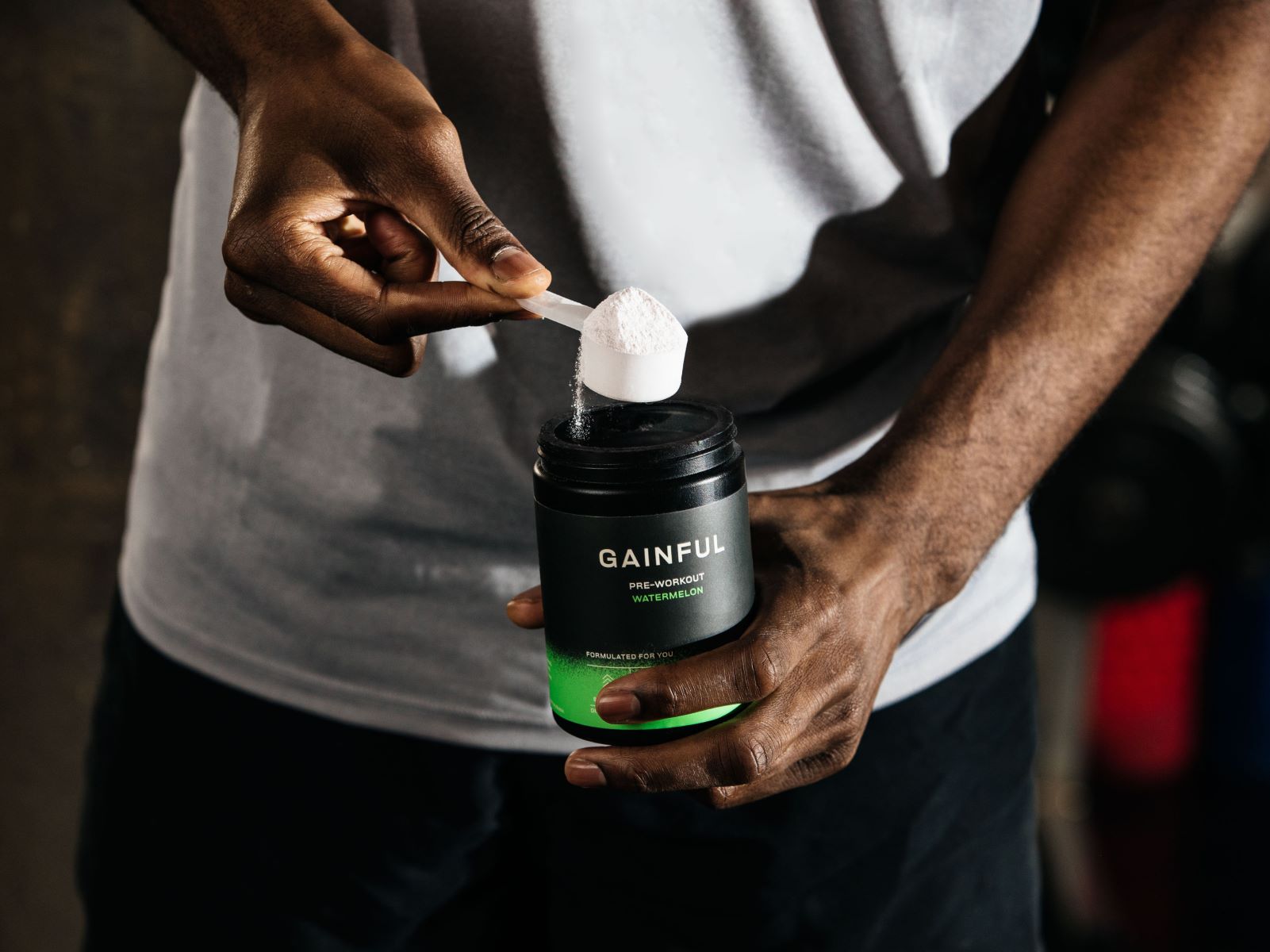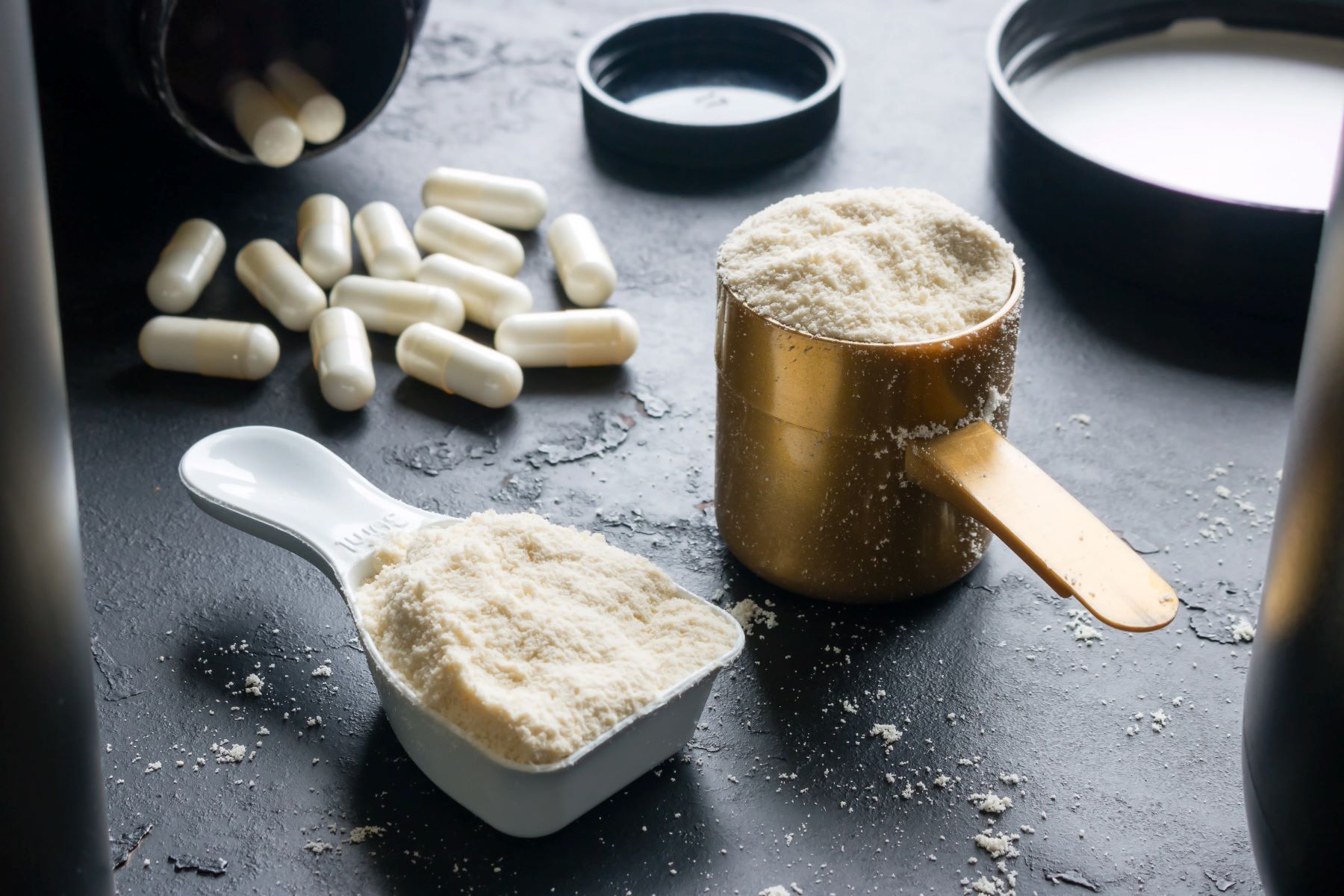

Featured
What Does Beta-Alanine Do In Pre-Workout
Modified: January 2, 2024
Discover the benefits of beta-alanine in pre-workout supplements with our featured article. Enhance your endurance and performance for an effective workout.
Introduction
Welcome to the world of pre-workout supplements, where athletes and fitness enthusiasts strive to optimize their performance and achieve their fitness goals. One ingredient that has gained significant attention in the fitness community is beta-alanine. In this article, we will explore the role of beta-alanine in pre-workout supplements and the benefits it can provide.
When it comes to pre-workout supplements, the market is filled with a wide array of options promising increased energy, endurance, and performance. Beta-alanine, a non-essential amino acid, is a popular ingredient found in many of these supplements. But what exactly does beta-alanine do, and how does it benefit our workouts?
Before we delve into the benefits, let’s take a moment to understand the background of beta-alanine. It is naturally produced in our bodies and is also found in certain foods like poultry, fish, and meat. However, the amounts present in these foods may not be sufficient to provide the desired effects for athletes and fitness enthusiasts. That is why supplementing with beta-alanine has become increasingly popular among those seeking to maximize their performance.
The main mechanism behind beta-alanine’s effects lies in its ability to increase the levels of carnosine in our muscles. Carnosine is a dipeptide that works as a buffer, helping to regulate pH levels in our muscles during intense exercise. By increasing the pool of carnosine in our muscles, beta-alanine acts as a lactic acid buffer, allowing us to push through the “burn” and perform at higher intensities for longer periods.
Now that we understand the basics of beta-alanine, let’s explore the benefits it can provide in the context of pre-workout supplementation. From increased muscular endurance to improved exercise performance, beta-alanine offers a range of advantages that can help take your workouts to the next level. Through this article, we will dive into each of these benefits, discussing the underlying mechanisms and the evidence supporting its use.
Background on Beta-Alanine
Before we delve into the benefits of beta-alanine in pre-workout supplements, let’s take a closer look at this essential amino acid and its role in our bodies.
Beta-alanine is a naturally occurring non-essential amino acid, which means that our bodies can produce it on their own. It is also present in certain foods, such as poultry, fish, and meat. However, the amounts found in these foods are typically not enough to elicit the desired performance-enhancing effects.
When we consume beta-alanine, it combines with another amino acid called histidine to form carnosine. Carnosine is stored in our muscles and acts as a pH buffer, helping to regulate the acidity levels during intense exercise. By increasing the levels of carnosine in our muscles, beta-alanine helps to delay the onset of muscle fatigue and improve exercise performance.
While our bodies naturally produce beta-alanine, the rate at which it is produced may not be sufficient to meet the demands of intense physical activity. This is where supplementation comes into play. By taking beta-alanine as a supplement, you can increase the levels of carnosine in your muscles and reap the benefits it provides.
It is worth noting that beta-alanine supplementation works best when combined with exercise. The increased levels of carnosine in your muscles will have a more significant impact when you are pushing your body to its limits. Incorporating beta-alanine into your pre-workout routine can help optimize your performance and enable you to achieve your fitness goals.
When it comes to safety, beta-alanine is generally well-tolerated by most individuals. However, some people may experience a harmless side effect known as paresthesia, which is a tingling sensation on the skin. This is temporary and typically subsides within a few minutes. It is also important to note that beta-alanine supplementation may not be suitable for individuals with certain medical conditions or those who are pregnant or breastfeeding. If you have any concerns, it is best to consult with a healthcare professional before starting any new supplement regimen.
Now that we have gained a better understanding of beta-alanine and its role in our bodies, let’s explore the specific benefits it can provide when included in pre-workout supplements. From enhancing muscular endurance to improving exercise performance, beta-alanine has a range of advantages that can help you take your workouts to the next level.
Benefits of Beta-Alanine in Pre-Workout Supplements
Adding beta-alanine to your pre-workout supplement regimen can provide a variety of benefits that can contribute to improved performance and results. Let’s explore some of the key advantages of incorporating beta-alanine into your pre-workout routine:
Increased Muscular Endurance
One of the primary benefits of beta-alanine supplementation is its ability to enhance muscular endurance. By increasing the levels of carnosine in your muscles, beta-alanine acts as a buffer against lactic acid buildup. During intense exercise, the accumulation of lactic acid can lead to fatigue and a decrease in performance. However, with elevated carnosine levels, you can push through the burn and continue exercising at a higher intensity for a longer duration. This enhanced endurance allows you to maximize your training volume, leading to greater gains in strength and muscle mass.
Enhanced Exercise Performance
In addition to increasing muscular endurance, beta-alanine can also enhance overall exercise performance. By reducing fatigue, it allows you to maintain higher power outputs and exertion levels throughout your workouts. This can translate into improved performance in various athletic pursuits, such as sprinting, weightlifting, and high-intensity interval training. Whether you are aiming to run faster, lift heavier, or perform more repetitions, beta-alanine can help you reach your performance goals.
Delayed Fatigue
One of the frustrating aspects of intense exercise is the feeling of fatigue that sets in sooner than desired. However, by supplementing with beta-alanine, you can experience a delay in fatigue onset. This means that you can sustain your performance for longer periods, giving you the ability to push harder and achieve more during your workouts. Whether you are engaging in long endurance events or high-intensity interval training, the ability to delay fatigue can make a significant difference in your overall performance and results.
Improved Recovery
Beta-alanine can also play a role in improving your post-workout recovery. Exercise-induced muscle damage and inflammation are common after intense training sessions. By enhancing carnosine levels, beta-alanine can help reduce oxidative stress and inflammation, leading to faster recovery and reduced muscle soreness. This means you’ll be able to hit the gym again sooner, with less downtime between workouts, allowing for more consistent training and better progress over time.
It’s important to note that while beta-alanine offers numerous benefits, it is just one piece of the puzzle. Proper nutrition, hydration, sleep, and overall training program are all essential factors that contribute to optimal performance and results. By incorporating beta-alanine into your pre-workout supplement routine, along with a well-rounded approach to fitness, you can maximize your potential and achieve your goals.
Increased Muscular Endurance
Beta-alanine supplementation is known for its ability to enhance muscular endurance, making it a popular choice for athletes and fitness enthusiasts looking to improve their performance. But how exactly does beta-alanine contribute to increased muscular endurance?
During high-intensity exercise, our muscles produce lactic acid as a byproduct of anaerobic metabolism. The accumulation of lactic acid leads to a decrease in pH levels, creating an acidic environment within the muscles. This acidity contributes to muscle fatigue, reducing our ability to maintain high levels of performance over an extended period.
By supplementing with beta-alanine, we can increase the levels of carnosine in our muscles. Carnosine acts as a buffer, helping to regulate pH levels within the muscles. With higher carnosine levels, the onset of muscle fatigue and the build-up of lactic acid can be delayed, allowing for longer periods of sustained performance.
Research suggests that beta-alanine supplementation can improve muscular endurance in various forms of exercise. In one study, participants who took beta-alanine for four weeks showed significant increases in their time to exhaustion during a cycling test compared to the placebo group. Another study found that beta-alanine supplementation improved endurance performance in sprinters, as indicated by increased sprint times and reduced decrease in performance over repeated sprints.
Additionally, beta-alanine has been shown to be beneficial for resistance training. By increasing muscular endurance, it allows individuals to perform more repetitions and sets with a given weight before experiencing fatigue. This can lead to greater training volume, which is an important factor for muscle hypertrophy and strength gains.
It’s important to note that while beta-alanine enhances muscular endurance, it is most effective during high-intensity, short to moderate duration exercises. Activities such as sprinting, weightlifting, and high-intensity interval training can benefit greatly from beta-alanine supplementation. Endurance activities, such as long-distance running or cycling, may not see as significant of an improvement, as they primarily rely on aerobic metabolism rather than anaerobic metabolism.
Incorporating beta-alanine into your pre-workout supplement routine can provide you with the endurance you need to push through challenging workouts and reach new levels of performance. Whether you’re aiming to increase your sprint speed, complete more reps during resistance training, or simply improve your overall workout endurance, beta-alanine can be a valuable addition to your supplementation strategy.
Enhanced Exercise Performance
When it comes to maximizing athletic performance, beta-alanine supplementation can be a game-changer. By incorporating beta-alanine into your pre-workout routine, you can experience enhanced exercise performance across various sports and activities.
One of the primary ways beta-alanine improves exercise performance is by delaying fatigue. As mentioned earlier, beta-alanine increases the levels of carnosine in your muscles, which acts as a buffer against lactic acid accumulation. By reducing the buildup of lactic acid, beta-alanine helps to maintain optimal pH levels in the muscles, allowing you to perform at a higher intensity for a longer duration.
Whether you’re sprinting on the track, lifting weights in the gym, or performing high-intensity interval training, beta-alanine can give you the extra push needed to excel. Studies have shown that beta-alanine supplementation can improve performance in a range of athletic activities. For example, in one study, rugby players who took beta-alanine for a prolonged period had higher maximal strength and power compared to the placebo group. Another study found that beta-alanine supplementation improved running performance in competitive middle-distance runners.
Beta-alanine’s ability to enhance exercise performance is not limited to improving endurance alone. It can also help increase power and explosiveness during activities that require short, intense bursts of energy, such as weightlifting, sprinting, and jumping. By delaying fatigue, beta-alanine enables athletes to maintain higher power outputs and exertion levels throughout their training sessions or competitions.
Moreover, beta-alanine’s benefits extend beyond the physical aspects of exercise performance. It has been suggested that beta-alanine supplementation can also have positive effects on cognitive function, focus, and mental stamina. This can be particularly beneficial for athletes participating in sports that require mental acuity and concentration, such as team sports, martial arts, and endurance events.
With enhanced exercise performance, athletes and fitness enthusiasts can push their limits, achieve new personal bests, and surpass their goals. Whether you’re striving to improve your sprint speed, increase your one-rep max in the gym, or elevate your overall athletic performance, beta-alanine supplementation can provide the boost you need to reach new heights.
Delayed Fatigue
One of the key benefits of beta-alanine supplementation is its ability to delay the onset of fatigue. Whether you’re an athlete, a fitness enthusiast, or simply someone looking to get the most out of their workouts, the ability to push through fatigue and maintain performance for longer durations is crucial.
During intense exercise, the accumulation of metabolic byproducts, such as lactic acid, leads to a decrease in muscle pH, creating an acidic environment. This drop in pH affects muscle function and contributes to fatigue. By increasing the levels of carnosine in muscles, beta-alanine acts as a buffer against the acidic environment, allowing you to sustain higher levels of performance before fatigue sets in.
Studies have shown that beta-alanine supplementation can significantly delay the onset of fatigue, allowing individuals to exercise at higher intensities for extended periods. For example, research has demonstrated that cyclists who took beta-alanine were able to maintain a higher power output during a time trial compared to those who took a placebo. Similarly, another study found that beta-alanine supplementation led to improved time to exhaustion during high-intensity interval training.
Delayed fatigue can have a profound impact on your overall workout or training session. It means you can push through those last few reps, maintain a faster pace, or complete a higher volume of work before experiencing a drop in performance. This can be especially beneficial for athletes participating in sports that require sustained effort over time, such as long-distance running, cycling, or even team sports that involve multiple bouts of intense activity.
Additionally, delayed fatigue can have a positive psychological impact. When fatigue sets in too quickly, it can demotivate individuals and hinder their performance. By using beta-alanine to delay fatigue, you can gain a mental advantage, knowing that you can push through challenging moments and achieve new levels of success.
It’s important to note that while beta-alanine can delay the onset of fatigue, it does not eliminate it altogether. Fatigue is a natural response of the body to intense exercise and serves as a protective mechanism to prevent overexertion. However, by incorporating beta-alanine into your pre-workout routine, you can extend your performance window and optimize your training sessions.
By delaying fatigue, beta-alanine supplementation allows you to train harder, perform better, and achieve greater results. Whether you’re an endurance athlete, a strength athlete, or simply someone who wants to push their limits, beta-alanine can be a valuable tool in your arsenal for reaching your fitness goals.
Improved Recovery
Recovery is a crucial aspect of any training program or exercise routine. It is during the recovery phase that our bodies repair and adapt to the stress placed on the muscles during exercise. Beta-alanine supplementation has been shown to play a role in improving post-workout recovery, allowing individuals to bounce back faster and continue making progress.
Intense exercise can cause muscle damage and inflammation, leading to soreness and reduced performance in subsequent workouts. By increasing the levels of carnosine in the muscles, beta-alanine can help combat this exercise-induced damage and inflammation.
Research has indicated that beta-alanine supplementation can reduce markers of muscle damage and promote a faster recovery process. In a study examining the effects of beta-alanine on recovery following intense exercise, participants who took beta-alanine experienced lower levels of creatine kinase, a marker of muscle damage, compared to those who took a placebo. Another study found that beta-alanine supplementation reduced markers of oxidative stress and inflammation, leading to improved recovery in resistance-trained individuals.
By reducing muscle damage and oxidative stress, beta-alanine supplementation can help individuals bounce back faster from intense workouts. This means less downtime between sessions and a reduced risk of overtraining or burnout. With a shorter recovery period, individuals can maintain a consistent training schedule, leading to more frequent and productive workouts.
Improved recovery also translates to a reduced perception of muscle soreness. Delayed onset muscle soreness (DOMS) is a common occurrence after intense exercise, characterized by muscle pain, stiffness, and reduced range of motion. Beta-alanine supplementation has been shown to alleviate some of the symptoms associated with DOMS, allowing individuals to train at a higher intensity and with greater comfort.
In addition to its direct impact on recovery, beta-alanine may also indirectly contribute to improved recovery by enhancing endurance and performance. By being able to sustain higher levels of intensity for longer durations, individuals can achieve a greater training stimulus. This can lead to greater adaptations and progress over time, ultimately improving overall performance and recovery.
It’s important to note that while beta-alanine supplementation can aid in recovery, it should not be relied upon as the sole method of recovery. Proper nutrition, hydration, sleep, and rest are all vital components of a well-rounded recovery plan. By incorporating beta-alanine into your pre-workout supplement routine, along with a comprehensive approach to recovery, you can optimize your recovery process and continue making strides towards your fitness goals.
Potential Side Effects
While beta-alanine supplementation is generally safe for most individuals, it’s important to be aware of potential side effects that may occur. Understanding these side effects can help you make an informed decision and minimize any risks associated with the use of beta-alanine.
One common side effect of beta-alanine supplementation is a tingling sensation on the skin, known as paresthesia. This sensation, often described as a “pins and needles” feeling or a mild itching, can occur shortly after consuming beta-alanine and typically lasts for a short duration. It is a harmless side effect and tends to subside on its own within a few minutes. It is important to note that not everyone experiences paresthesia, and its intensity can vary from person to person.
It’s worth mentioning that higher doses of beta-alanine may increase the likelihood and intensity of paresthesia. If you find the sensation uncomfortable, you can try splitting your dosage throughout the day or reducing the dose to minimize its occurrence. Additionally, starting with a lower dosage and gradually increasing it over time can also help your body adjust to beta-alanine supplementation.
While paresthesia is the most commonly reported side effect, other potential side effects of beta-alanine supplementation are relatively rare. Some individuals may experience digestive discomfort, such as nausea, stomach upset, or diarrhea. These symptoms are usually mild and transient, resolving on their own without any long-term complications.
It’s worth noting that beta-alanine supplementation may not be suitable for individuals with certain medical conditions or those who are pregnant or breastfeeding. If you have any underlying health concerns, it is advisable to consult with a healthcare professional before starting any new supplement regimen.
Additionally, it’s important to source your beta-alanine supplement from reputable brands and ensure that you are using high-quality products. This can help minimize the risk of contamination or impurities that may cause adverse effects.
As with any supplement or dietary change, it’s crucial to listen to your body and pay attention to how you feel. If you experience any significant or persistent side effects while taking beta-alanine, it is recommended to discontinue use and consult with a healthcare professional.
In summary, beta-alanine supplementation is generally safe and well-tolerated, with the most common side effect being temporary paresthesia. By being aware of the potential side effects and using beta-alanine responsibly, you can make the most of its performance-enhancing benefits while minimizing any associated risks.
Recommended Dosage and Timing
When it comes to beta-alanine supplementation, it’s crucial to follow the recommended dosage guidelines to maximize its benefits and minimize the risk of side effects. Here are some general guidelines for dosage and timing:
The standard daily dose of beta-alanine for adults is typically between 2 to 5 grams. However, it’s important to note that individual needs may vary, and it’s best to start with a lower dosage and gradually increase it over time to allow your body to adapt. By starting with a lower dosage, you can also assess your tolerance to beta-alanine and monitor for any potential side effects.
Since beta-alanine is not an acute supplement and needs to be taken consistently to increase muscle carnosine levels, it’s recommended to take it daily. Ideally, it’s best to divide your daily dosage into equal smaller doses throughout the day to help minimize the likelihood of experiencing paresthesia, the tingling sensation that can occur shortly after consuming beta-alanine. For example, if you are taking 4 grams per day, you may split it into 1-gram doses taken four times a day.
Timing your beta-alanine intake is also important to enhance its effects. It’s recommended to consume beta-alanine alongside a meal or a source of carbohydrates to enhance its absorption. Consuming beta-alanine with carbohydrates helps to stimulate the release of insulin, which can enhance the uptake of beta-alanine into the muscles.
Additionally, it’s worth noting that beta-alanine is most effective when used as part of a long-term supplement regimen. It takes time for the levels of carnosine in the muscles to increase, usually up to several weeks of regular supplementation. Consistency is key, so it’s important to maintain a consistent supplement routine to experience the full benefits of beta-alanine.
As with any supplement, it’s always a good idea to consult with a healthcare professional or a registered dietitian before starting beta-alanine supplementation. They can provide personalized advice based on your unique needs, goals, and any underlying medical conditions.
In summary, the recommended dosage for beta-alanine is typically between 2 to 5 grams per day, divided into equal smaller doses taken throughout the day. Timing your beta-alanine intake with a meal or a carbohydrate source can enhance its absorption. Consistency in supplementation is important to allow for the accumulation of carnosine in the muscles over time. Consulting with a healthcare professional is always advisable to determine the optimal dosage and timing based on your individual circumstances.
Conclusion
Beta-alanine is a valuable ingredient in pre-workout supplements, offering a range of benefits that can enhance your athletic performance and help you achieve your fitness goals. By increasing the levels of carnosine in your muscles, beta-alanine acts as a buffer against lactic acid buildup, leading to increased muscular endurance, enhanced exercise performance, delayed fatigue, and improved recovery.
Through its ability to increase muscular endurance, beta-alanine allows you to push through the “burn” and perform at higher intensities for longer durations. This can lead to greater gains in strength and muscle mass, whether you’re lifting weights or engaging in high-intensity interval training.
Enhanced exercise performance is another key benefit of beta-alanine supplementation. By delaying fatigue and maintaining higher power outputs and exertion levels, beta-alanine helps you achieve better results in various athletic endeavors, from sprinting to weightlifting.
Beta-alanine can also contribute to delaying the onset of fatigue, allowing you to perform at a higher intensity for a longer duration. This can be particularly valuable for endurance athletes, as it can extend your performance window and help you sustain your efforts over time.
Improved recovery is another advantage of beta-alanine supplementation. By reducing muscle damage and inflammation, beta-alanine can help you recover faster between workouts, enabling you to maintain a consistent training schedule and make progress towards your fitness goals.
While beta-alanine is generally safe and well-tolerated, it may lead to temporary side effects such as paresthesia (tingling sensation) and digestive discomfort. It’s important to start with a lower dosage and gradually increase it to assess your tolerance. Consulting with a healthcare professional is recommended, especially if you have any underlying health conditions or are pregnant or breastfeeding.
In summary, incorporating beta-alanine into your pre-workout supplement routine can provide numerous benefits for athletes and fitness enthusiasts. Through increased muscular endurance, enhanced exercise performance, delayed fatigue, and improved recovery, beta-alanine can take your workouts to the next level. Remember to follow the recommended dosage and timing guidelines, and listen to your body to optimize your experience with beta-alanine supplementation.


